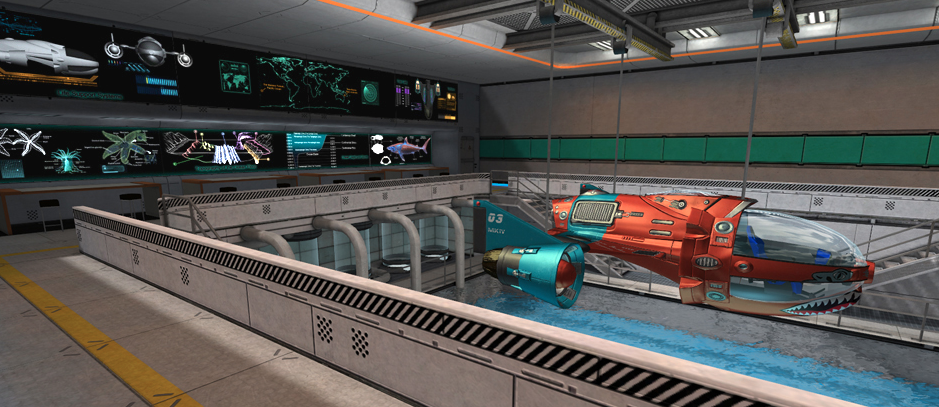In a few months time, and with a few clicks, elementary and high school students in the Baltimore region could be learning about the principles of heat transfer and robotics in a wholly online environment.
Cyber STEM Academy, an interactive, K-to-12 learning environment that launched last month, is a “plug-and-play platform” for integrating a school’s existing math and science curriculum into a 3D laboratory. Students control digital avatars while inside a virtual school, and interact with other student-avatars to complete lessons in physics, for instance, inside a virtual gymnasium.
But it’s not a game.
“I don’t believe in that term, gamification,” said Frank Vivirito, CEO of Immersive 3D, the edtech startup he founded in 2010 that created Cyber STEM Academy. “I believe in experiential learning.”
Although gamification and experiential learning can sometimes sound like a distinction without a difference, Vivirito insists they’re not the same. While the gamification of education has tended to focus more on finding quick ways to reward students for completing lessons, Cyber STEM Academy is more like a simulation allowing students to put STEM concepts learned in the classroom into practice.
Vivirito’s experience, however, comes out of the gaming community that’s been developed in the Baltimore region over the last quarter-century. He once worked at gaming giant Microprose, and has 13 entertainment game titles under his belt. A U.S. Navy veteran and graduate of the University of Maryland University College, Vivirito also helped develop simulations for NASA and NATO.
But the “best thing” to ever happen to Vivirito, he said, was when he was invited to sit in on Baltimore County Public School Board meetings. It was those meetings that gave him the idea to fuse his background in simulation-gaming with STEM education.
Based out of the Emerging Technology Center, Immersive is a small startup, with just six full-time, two part-time employees and no venture funding. Its debut of Cyber STEM Academy happened in June at the STEM Trek conference at Towson University.
Vivirito said he has a “list of approximately 30 teachers who have expressed an interest” to use Cyber STEM Academy at their schools in the fall. He hopes to have the kinks removed by next month so schools can begin to pilot the software.
And while convincing schools in the Baltimore area to use Immersive’s online academy is Vivirito’s main focus, he hasn’t ruled out taking Immersive’s product global. A few weeks ago a team from Immersive 3D visited the British Embassy to demo Cyber STEM Academy for several schools based in London.
“The program itself is cloud-served by Amazon,” Vivirito said. “Anybody in the world can log on.”
Cyber STEM Academy is K-12 ‘learning environment’ from Immersive 3D







